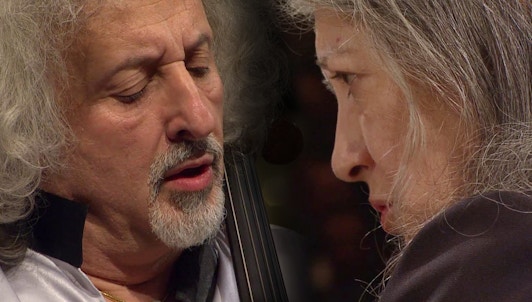Czech conductor Jiří Bělohlávek and the Prague Symphony Orchestra, with contralto Eva Randova, performing the five first Biblical Songs by Antonín Dvořák.
Born into a humble family settled in Nelahozeves, a village near Prague, Antonín Dvořák left school at the age of 11 to learn his father's trades, butcher and innkeeper. Thankfully, Antonín's precocious musical gifts are quickly noticed, and the young boy is sent to study at his uncles's plance in Zlonice, then to Prague from 1857 onwards. Playing the viola in the Prager Kappelle's orchestra, Dvořák familiarized himself with the classical and contemporary masterworks. Enjoying a well-established reputation from his peers and the internation audience, Dvořák is in his lifetime a Major figure on the musical scene. Invited in Germanay, in France, in the United Kingdom and in the United States, Dvořák eventually went back to his homeland to manage the Conservatory of Pragua. Dvořák, who died in 1904, left a considerable oeuvre which has ever since been performed on the stages worldwide.
Czech contralto Eva Randova made her debut in 1962, performing Eboli in Verdi’s Don Carlo, Ortrud in Lohengrin, Carmen, Amneris in Aida, Azucena in Il Trovatore, Küsterin in Jenufa by Janácek and the Princess in Rusalka by Dvořák. By 1969, she became appointed to the Prague National Opera. She has sung in the most prestigious venues and festivals worldwide. In 1993, with conductor Jiří Bělohlávek, she performed the five first Biblical Songs by Dvořák, at the Atler Oper.
As far as the Czech conductor Jiří Bělohlávek is concerned, he is one of the most sought after conductors of our times. He became chief conductor of the Czech Philharmonic in 1990, before teaching the art of conducting at the Prague Academy of Music. In 1993, he founded the Prague Philharmonia. He was named chief conductor of the BBC Symphony Orchestra, and is currently chairman of the Prague Spring International Music Festival.


